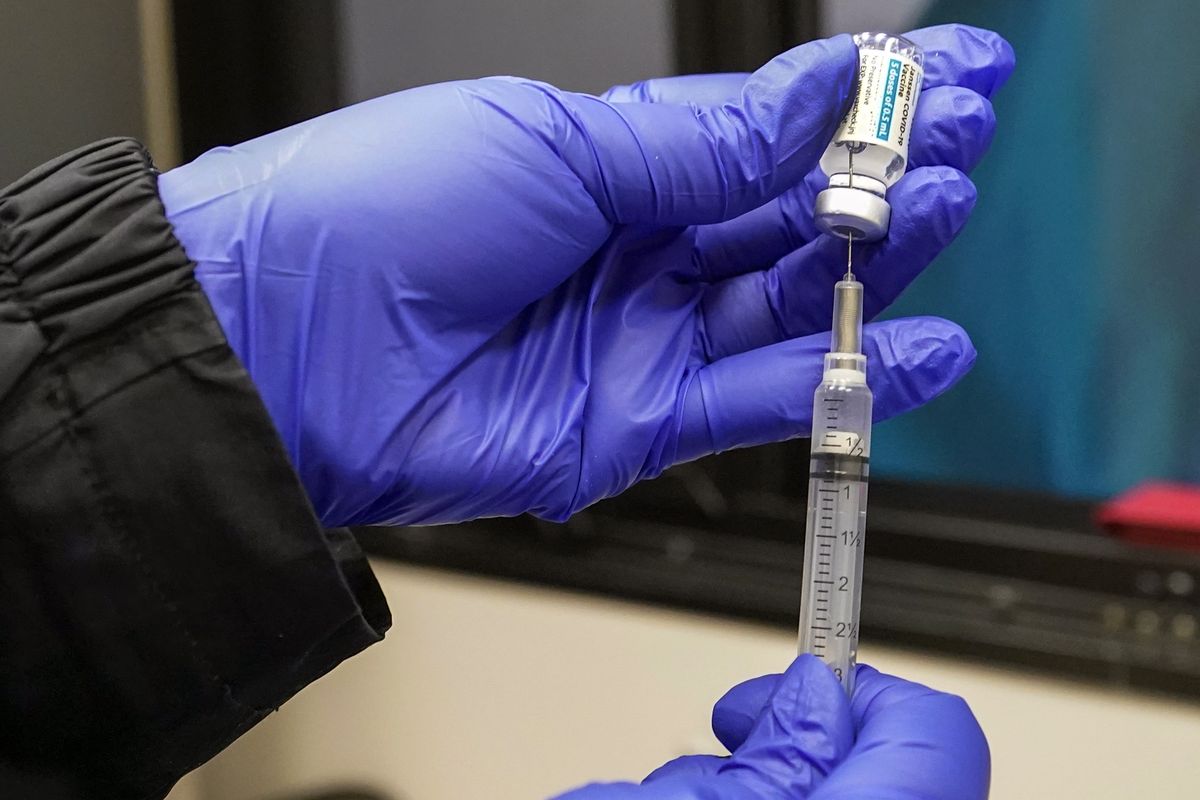Washington pauses Johnson & Johnson vaccine administration while federal agencies study ‘very rare’ blood clots

The Washington Department of Health has paused administration of the Johnson & Johnson single-shot COVID-19 vaccine after several women nationwide who received it developed severe brain blood clots.
The side effect has been found in just six of the more than 6.8 million U.S. residents who have received the vaccine thus far.
The Centers for Disease Control and Prevention and the Food and Drug Administration also took action and asked for a nationwide pause while health officials and committees meet to evaluate the data.
Six women ages 18 to 48 who received the Johnson & Johnson vaccine were found to have developed brain blood clots, combined with low platelet counts, six to 13 days after their inoculations.
This means that so far there is a less than one in a million chance that a person will have this adverse reaction to the Johnson & Johnson vaccine. Both birth control and pregnancy come with higher risks for blood clots than the Johnson & Johnson vaccine.
The Advisory Committee on Immunization Practices, which advises the FDA, will meet on Wednesday to discuss these side effects and assess their significance.
Acting State Health Officer Dr. Scott Lindquist pointed out that current data does not imply causation.
“I want to caution us to not jump to conclusions that this is truly from the vaccine,” Lindquist said.
Washington health officials expect the pause to only be in effect for a few days or a week at most, noting the incredibly rare reaction.
“These are adverse events that are very rare and unfortunate, but it should not take away from the fact that these three vaccines we have are safe and effective,” State Secretary of Health Umair Shah told reporters Tuesday. “The rarity of this side effect – again, one in a million – while serious, it has to be reminded to everybody that this is rare in and of itself.”
The pause does not impact the majority of vaccination efforts underway in the state, and the adverse reactions were not associated with either the Pfizer-BioNTech or Moderna vaccines.
If you have received the Johnson & Johnson vaccine in the last three weeks, health officials ask that you monitor yourself for symptoms, which include shortness of breath, severe headaches or pain in the chest, abdomen or legs.
If you experience these side effects, health officials asked people to contact their health care provider. If you received a Johnson & Johnson vaccine more than a month ago, the the risk of complications is low.
The adverse reactions are so rare that they were not even detected in clinical trials, which means they were detected through the nation’s adverse events reporting system.
“This means that our serious adverse event reporting system works,” Lindquist said on Tuesday.
So far, about 160,000 Washington residents have received the Johnson & Johnson vaccine, and the state has received about 320,000 doses from federal and state allocations. The single-dose vaccine accounts for only 6% of the vaccine in Washington.
About 650 providers across the state have received the doses, which were distributed on a pro-rata basis to counties.
Forecasts show that Washington was expecting to receive a little more than 20,000 Johnson & Johnson doses in the coming three weeks, so this pause will not significantly slow down vaccination efforts statewide.
Some clinics scheduled for this week using the Johnson & Johnson doses will have to be rescheduled or canceled, if those providers cannot find Pfizer or Moderna vaccine doses to administer instead. The Spokane Regional Health District had to cancel some of its appointments for later in the week, after pivoting to using other doses on Tuesday.
Health officials said the pause is just as much for physicians to prepare for and recognize how they should treat patients who might come in for similar adverse reactions. The six patients who developed the severe blood clots also had low platelet counts, which means physicians should not use traditional blood thinners to treat them.
“You have to move forward with different types of therapeutics, so this pause allows the CDC and our federal partners to get information out to medical doctors and health care providers on how best to treat patients who might come forward with these symptoms,” Shah said.
Shah emphasized that the news does not diminish the safety or effectiveness of all three vaccines.
There are higher risks of developing blood clots for women, in general, with one to five out of 10,000 women who do not use birth control at risk of developing blood clots, according to the FDA.
Some oral contraceptives are associated with higher rates of risk for blood clotting, with three to nine women out of 10,000 who use birth control pills at risk for developing blood clots, according to the FDA. Pregnant women and women who have just given birth are at even higher risk for blood clots, with 40 to 65 out of 10,000 women who are postpartum likely to develop a blood clot.
None of the women who developed clots after receiving the Johnson & Johnson vaccine were from Washington state.
Locally, 7,500 doses of the Johnson & Johnson vaccine have been distributed to providers in Spokane County by the state. The Spokane Regional Health District is not aware of any adverse reactions to the vaccine locally.
Here’s a look at local numbersThe Spokane Regional Health District confirmed 102 new COVID-19 cases and two additional deaths on Tuesday.
There have been 591 deaths confirmed due to COVID-19 in Spokane County residents to date, but the Department of Health is reconciling data with the district for the next week so these numbers could change.
There are 35 people with COVID-19 hospitalized in Spokane County.
The Panhandle Health District confirmed 34 new cases of COVID-19 on Tuesday and no additional deaths.
There are 33 Panhandle residents hospitalized with the virus.